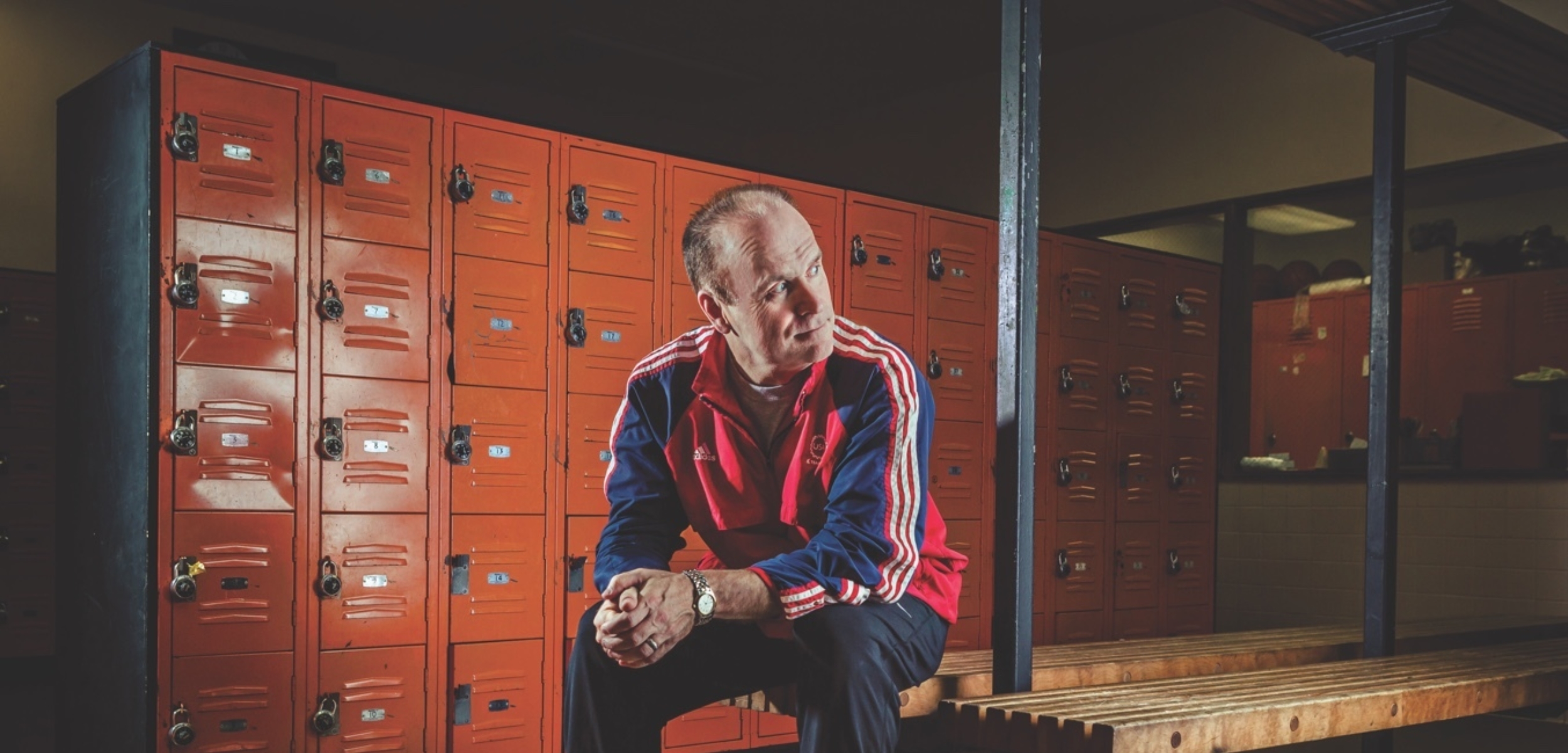
Since graduating from CWU in 1981, Bryan Hoddle has chosen to use his career to make an impact.
The Olympia native spent most of his career as a history and physical education teacher, retiring in 2015. But restless to keep making a difference, Hoddle began working with amputee athletes and those suffering from traumatic brain injuries, the majority being soldiers.
“I never imagined I’d be here in a million years,” Hoddle said of his career. “I never served in the military, but I’m thankful to have been placed in a position where I could have an impact on people that I really care about and love.”
For close friend and acupuncturist, Dr. Bob Greczanik, Hoddle’s commitment to assisting injured amputees is where his work truly shines. Hoddle has worked with over 5,000 soldiers to date.
“Bryan really cares about people—he really cares about human beings,” Greczanik said. “His great commitment to the military and giving his time to help injured veterans move really shows his love for people.”
Hoddle has received numerous awards for his work, including being named a 2013 Runner’s World Magazine Hero of the Year in Running, and also being selected as one of six Americans to receive the 2014 USA Track and Field President’s Award.
However, one award stands out above the others.
“Being honored by the Washington State House of Representatives really meant a lot,” Hoddle said. “The fact that they took the time to do it, they acknowledged my teaching, acknowledged my coaching. It’s not every day that the House of Representatives and Olympia does that.”
“I never served in the military, but I'm thankful to have been placed in a position where I could have an impact on people that I really care about and love.”
—Bryan Hoddle
Hope Mortensen, a former multi-event track and field athlete at Idaho State University, is just one of the successful athletes that Hoddle has worked with.
“Bryan has helped me tremendously,” Mortensen said. “He is a very genuine person and cares about his athletes, not only as athletes but as individuals. As a person, overall, he’s very inspirational and passionate about his athletes.”
Hoddle also serves as a motivational speaker with schools and local camps being his biggest target. He believes the human component is important for youth to have, and that teachers can have a bigger impact on students than tests ever could.
“I was at a camp in Alabama and watched this one young amputee soldier throw a shot put and I said to him, ‘Man you looked really good,’” Hoddle said. “He came up to me at the end of the camp and said how much that meant to him because when he came to the camp, he was planning to go home and take his own life. Those words lit a fire under him. It changed the direction of his thinking.”
While Hoddle’s career took an unexpected turn later in life, he believes his passion for teaching aided him in providing support for athletes with disabilities. He credits the late John Pearson, professor emeritus of physical education at CWU, with giving him the tools necessary to succeed.
“I learned so many things from Dr. Pearson,” Hoddle said. “He always said, ‘Anticipate what could go wrong when you’re teaching and have your plan ahead of time,’ and it stuck with me all 34 years.”
Hoddle says CWU played a big part in his career and was one of the critical steps in where he is today.
“I have a lot of former students that are in high school that would be a great fit for Central,” Hoddle said. “If someone was trying to think of a college to send their son or daughter, a safe place [and] a solid education, I think Central is the place.”
Hoddle also serves on the board of trustees for the Seattle-based Invictus Foundation, which works to increase and improve access to behavioral-health services for the nation’s military, veterans, and their families. In the year ahead, Hoddle will closely consult with Peter Whalen, the Invictus Foundation’s founder and chief executive officer, in preparation for the 2020 groundbreaking on its first TBI (traumatic brain injury) & Psychological Health Center. The new Western Regional Center will be located in Orting, 20-miles southeast of Tacoma.
“Bryan will provide the expertise and knowledge base to help me bring the physical recovery and fitness aspects of this project to life,” Whalen said.



comments powered by Disqus